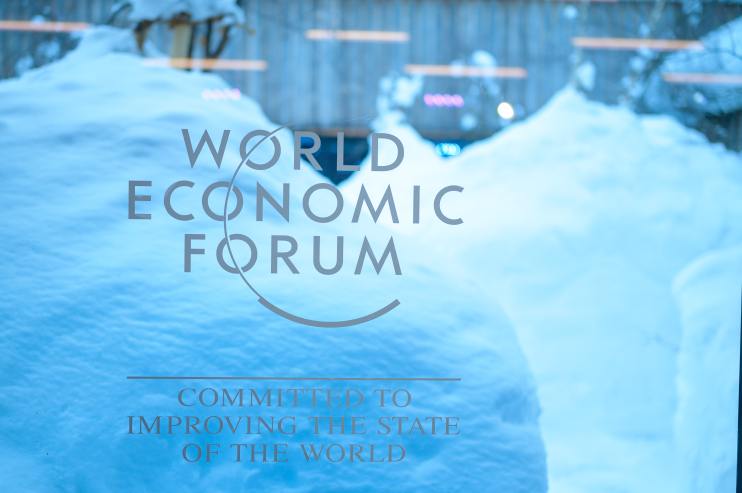Davos 2024: Who will (and won’t) be there? What’s on the agenda? And how much does it cost?

The latest World Economic Forum in Davos is set to kick off this Sunday, with the great-and-the-good paying thousands, by invitation-only, to be there.
But why are they all going to Switzerland, what are they looking to achieve, and can anyone go?
Fear not, we have all the answers.
First and foremost where and what is it?
The 54th annual Davos event will take place over the course of five days in the Swiss ski resort and attract global business leaders, politicians and international bodies to talk about everything from geopolitical tensions to the rise of Artificial Intelligence.
Past attendees include leaders of the UK, US, France, Germany and China, as well as environmental activist Greta Thunberg, and celebrities Elton John and Cate Blanchett.
As far as we know, Greta isn’t making a return.
Who exactly is going?
UK Chancellor Jeremy Hunt and Shadow Chancellor Rachel Reeves will both be in attendance.
Attendees from the global political sphere include China’s second-in-command Li Qiang and French President Emmanuel Macron, who will both give special addresses.
Macron is the only G7 leader attending this year’s event.
Attendees from the US include Secretary of State Antony Blinken, national security adviser Jake Sullivan and special presidential envoy for Climate John Kerry.
Argentinian President Javier Millei will give an address on Wednesday. He has recently made controversial decisions to dollarise the economy and abolish the central bank, leading to a sharp currency devaluation.
Figures from the global economy will make usual appearances, from International Monetary Fund Managing Director Kristalina Georgieva to World Bank President Ajay S. Banga and World Trade Organization Director-General Ngozi Okonjo-Iweala.
Heads from international bodies and civil society groups include the U.N.’s António Guterres, NATO’s Jens Stoltenberg, Tedros Adhanom Ghebreyesus of the World Health Organization and Tirana Hassan of Human Rights Watch will also attend.
Business leaders from around the world will also attend.
What’s on the agenda this year?
Aside from the previously-stated aim of rebuilding trust in the global economy, the forum has four key themes in 2024, including security, growth, the impact of AI and energy.
This will be the first WEF meeting since 2020 to be free of pandemic-related disruption. 2021’s meeting was virtual, while 2022’s was delayed.
“At 2023’s Forum we were still feeling the disruptions of all of those events, and discussion was centred on the economic recovery,” Karen Harris, Managing Director of the Macro Trends Group at Bain & Company, said to Reuters.
“This is the first WEF in years during which our sights can really be on what the next decade will bring, rather than the compressed and volatile business cycle.”
An escalation in geopolitical tensions, concerns over global trade, inflation and economic woes plus technological change and the rise in AI all remain top concerns, too, while a pre-meeting World Economic Forum survey released on Wednesday found extreme weather and misinformation to be the two biggest risks facing the world in 2024.
Two initiatives will also be closely watched: the AI government alliance – including Google, Microsoft, IBM, Meta Platforms – and the First Movers Coalition, which brings members together in an effort to de-carbonise the global economy.
How much is it?
Davos comes with a hefty price tag. While it is free for WEF members to attend, WEF membership is reportedly £52,000. Tickets cost around £20,000, although attendance is by invitation only.
Figures vary, but overall costs can exceed £250,000 for the week; rental homes can cost around £15,000, plus high food, drink and event prices (a hot dog reportedly costs $43). Many attendees fly in on private jets and hire drivers for the week, too.
